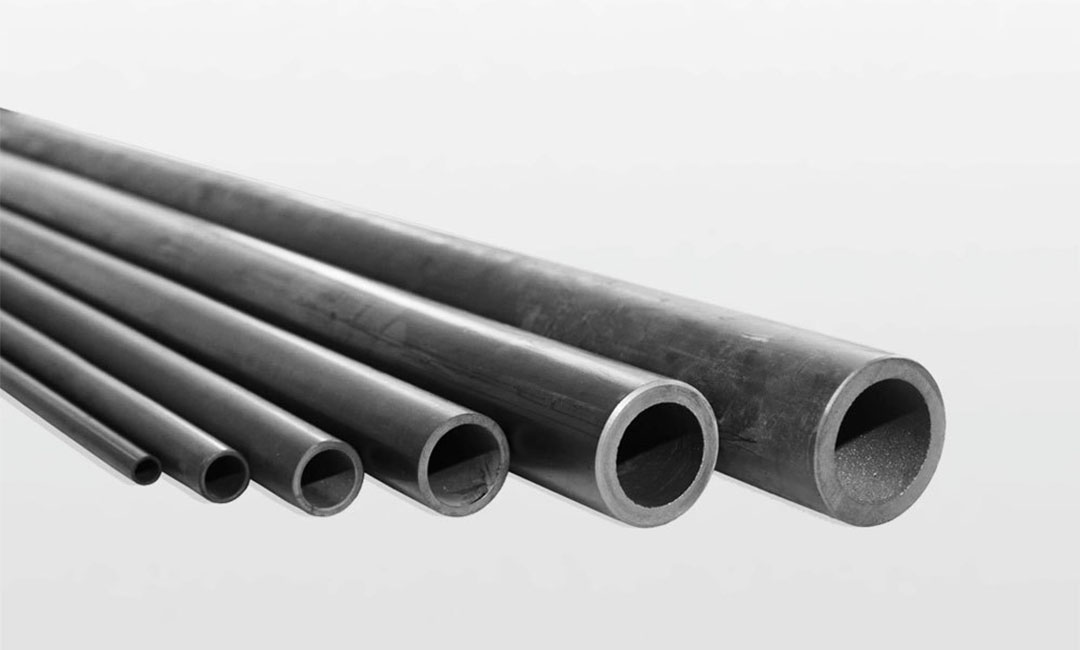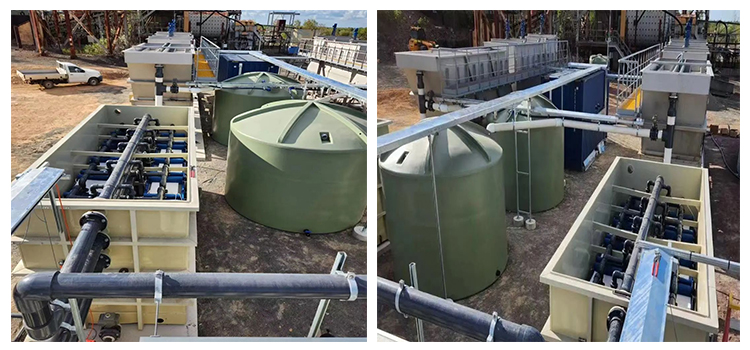Enhanced Efficiency and Performance
Silicon carbide (SiC) membrane filtration systems have gained popularity in industrial applications due to their enhanced efficiency and performance. These systems offer a range of benefits that make them a preferred choice for various industries, including water treatment, pharmaceuticals, food and beverage, and more.
One of the key advantages of SiC membrane filtration systems is their high chemical and thermal stability. SiC membranes can withstand a wide range of pH levels and temperatures, making them suitable for use in harsh industrial environments. This durability ensures that the membranes have a longer lifespan and require less frequent replacement, reducing maintenance costs and downtime.
In addition to their stability, SiC membranes also offer superior filtration performance. The unique structure of SiC membranes allows for precise control over pore size, resulting in excellent filtration efficiency and high flux rates. This means that SiC membrane filtration systems can effectively remove contaminants and particles from liquids, ensuring a high-quality end product.
Furthermore, SiC membranes are resistant to fouling, a common issue in membrane filtration systems. Fouling occurs when contaminants build up on the membrane surface, reducing filtration efficiency and requiring frequent cleaning. SiC membranes have a smooth surface and high hydrophilicity, which minimizes fouling and allows for longer operating times between cleanings.
Another advantage of SiC membrane filtration systems is their scalability. These systems can be easily customized to meet the specific needs of different industries and applications. Whether you need a small-scale system for a laboratory or a large-scale system for an industrial plant, SiC membranes can be tailored to your requirements.
SiC membrane filtration systems are also environmentally friendly. These systems require less energy and chemicals compared to traditional filtration methods, reducing operating costs and minimizing environmental impact. Additionally, SiC membranes can be easily cleaned and reused, further reducing waste and resource consumption.
Overall, SiC membrane filtration systems offer a cost-effective and sustainable solution for industrial applications. Their high efficiency, performance, and durability make them a reliable choice for industries looking to improve their filtration processes. Whether you are in the water treatment, pharmaceutical, food and beverage, or any other industry, SiC membrane filtration systems can help you achieve your filtration goals.

In conclusion, SiC membrane filtration systems are a superior choice for industrial applications due to their enhanced efficiency and performance. These systems offer a range of benefits, including high chemical and thermal stability, superior filtration performance, resistance to fouling, scalability, and environmental sustainability. By choosing SiC membrane filtration systems, industries can improve their filtration processes, reduce operating costs, and minimize environmental impact.
Cost Savings and Sustainability
Silicon carbide (SiC) membrane filtration systems have gained popularity in industrial applications due to their cost savings and sustainability benefits. These systems offer a more efficient and environmentally friendly alternative to traditional filtration methods, making them a preferred choice for many industries.
One of the key reasons why companies choose SiC membrane filtration systems is their cost savings potential. While the initial investment may be higher compared to other filtration systems, the long-term savings outweigh the upfront costs. SiC membranes have a longer lifespan and require less maintenance, resulting in reduced operating costs over time. Additionally, these membranes have a higher fouling resistance, which means they can operate at higher flux rates for longer periods without the need for frequent cleaning or replacement. This not only saves money on maintenance and downtime but also improves overall system efficiency.
In addition to cost savings, SiC membrane filtration systems offer sustainability benefits that align with the growing focus on environmental responsibility in the industrial sector. These membranes are made from a durable and recyclable material, making them a more sustainable option compared to traditional filtration membranes. SiC membranes also have a lower energy consumption due to their high permeability and fouling resistance, resulting in reduced operating costs and carbon emissions. By choosing SiC membrane filtration systems, companies can reduce their environmental footprint while improving their bottom line.
Furthermore, SiC membrane filtration systems are known for their high performance and reliability. These membranes have a uniform pore size distribution, which allows for precise filtration and separation of particles. This results in higher product quality and purity, making SiC membranes ideal for industries that require strict quality control standards. Additionally, SiC membranes can withstand harsh operating conditions, such as high temperatures and corrosive chemicals, without compromising performance. This durability and reliability make SiC membrane filtration systems a dependable choice for a wide range of industrial applications.

Another advantage of SiC membrane filtration systems is their versatility. These membranes can be customized to meet specific filtration requirements, making them suitable for a variety of applications across different industries. Whether it’s wastewater treatment, desalination, or chemical processing, SiC membranes can be tailored to address the unique needs of each application. This flexibility allows companies to optimize their filtration processes and achieve better results with SiC membrane technology.
In conclusion, SiC membrane filtration systems offer a cost-effective and sustainable solution for industrial applications. With their long-term cost savings, environmental benefits, high performance, reliability, and versatility, SiC membranes have become a preferred choice for companies looking to improve their filtration processes. By choosing SiC membrane filtration systems, companies can enhance their operational efficiency, reduce their environmental impact, and achieve better results in their industrial applications.
Superior Chemical and Thermal Resistance
Silicon carbide (SiC) membrane filtration systems have gained popularity in industrial applications due to their superior chemical and thermal resistance. These membranes offer a range of benefits that make them an ideal choice for various industries, including water treatment, pharmaceuticals, and food and beverage production.
One of the key advantages of SiC membrane filtration systems is their exceptional chemical resistance. Unlike traditional polymeric membranes, SiC membranes can withstand harsh chemicals, acids, and bases without degradation. This makes them ideal for applications where the filtration process involves aggressive chemicals or solvents. The ability of SiC membranes to resist chemical attack ensures a longer lifespan and lower maintenance costs, making them a cost-effective solution for industrial processes.
In addition to their chemical resistance, SiC membranes also exhibit superior thermal stability. These membranes can operate at high temperatures without losing their filtration efficiency, making them suitable for applications that require elevated temperatures. The thermal stability of SiC membranes allows for greater flexibility in process design and operation, as they can withstand the rigors of high-temperature processes without compromising performance.
Furthermore, SiC membranes offer excellent mechanical strength and durability. These membranes are highly resistant to physical damage, such as abrasion and impact, ensuring long-term reliability in industrial applications. The robust nature of SiC membranes makes them suitable for demanding environments where mechanical stress is a concern, providing peace of mind to operators and engineers.
Another advantage of SiC membrane filtration systems is their resistance to fouling. Fouling is a common issue in membrane filtration processes, where contaminants accumulate on the membrane surface, reducing filtration efficiency. SiC membranes have a smooth surface that inhibits fouling, allowing for continuous operation with minimal downtime for cleaning and maintenance. This anti-fouling property of SiC membranes ensures consistent performance and high filtration rates, making them an attractive choice for industrial applications.
Moreover, SiC membranes offer a high level of permeability, allowing for efficient filtration of liquids and gases. The unique structure of SiC membranes enables the passage of molecules while retaining contaminants, ensuring high-quality filtration with minimal energy consumption. This high permeability makes SiC membranes an energy-efficient solution for industrial processes, reducing operating costs and environmental impact.
In conclusion, SiC membrane filtration systems are an excellent choice for industrial applications due to their superior chemical and thermal resistance, mechanical strength, anti-fouling properties, and high permeability. These membranes offer a range of benefits that make them a cost-effective and reliable solution for various industries. With their ability to withstand harsh chemicals, high temperatures, and mechanical stress, SiC membranes provide a durable and efficient filtration solution for industrial processes. Whether in water treatment, pharmaceuticals, or food and beverage production, SiC membrane filtration systems offer a versatile and reliable solution for a wide range of applications.

